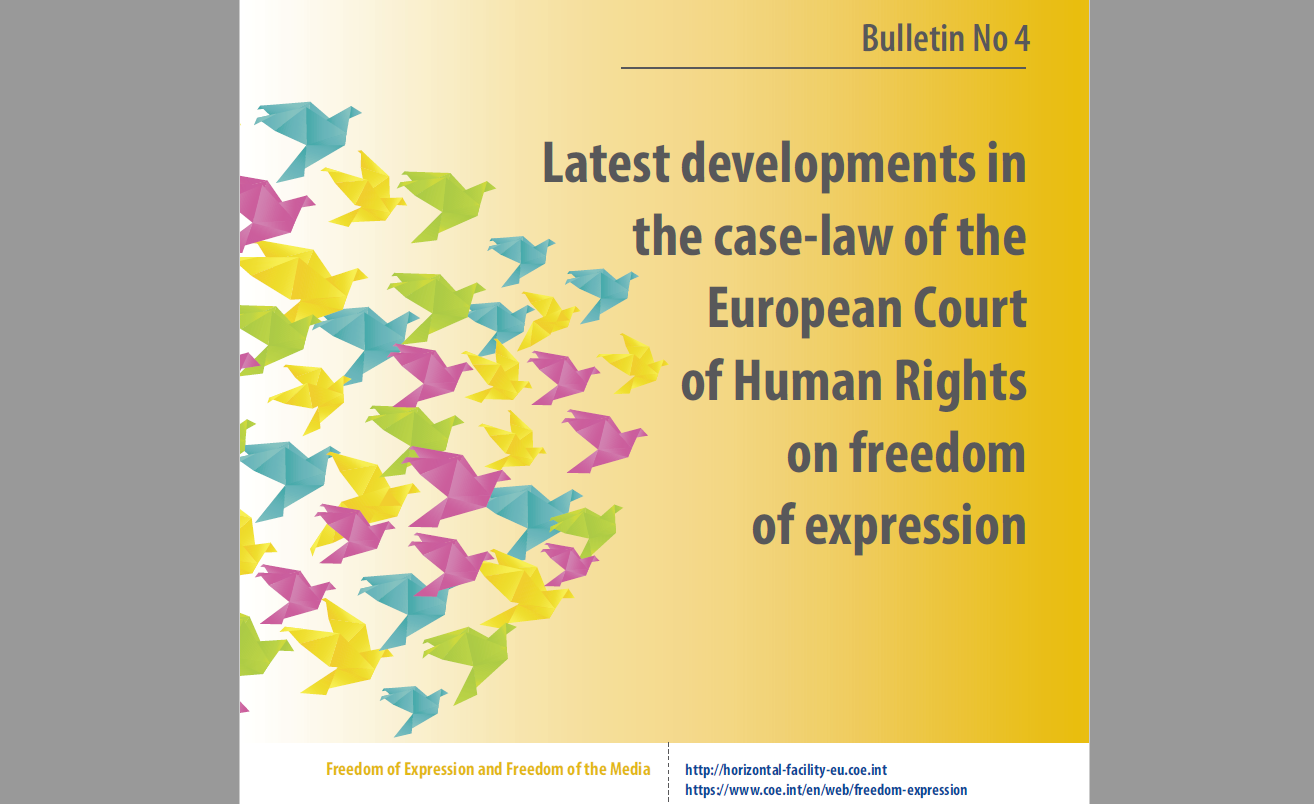The Bulletin on the “Latest developments in the case-law of the European Court of Human Rights on Freedom of Expression” constitutes a unique tool for sharing information on new trends and developments in the case law of the European Court of Human Rights (the ECtHR). It contributes to further reinforcing the capacity of domestic training institutions for legal professionals to provide their trainers and trainees with up-to-date learning tools. More broadly, it enables legal professionals in the Western Balkans and beyond to improve their knowledge of the applicable European standards and the evolving jurisprudence of the ECtHR in this area.
Published in the framework of the joint European Union and Council of Europe Horizontal Facility II programme, this Bulletin analyses the period between August 2021-January 2022. The selected judgments concern different thematic areas under Article 10 of the European Convention of Human Rights (the Convention), ranging from the so-called ‘right to be forgotten’ (an emerging area of jurisprudence for the ECtHR), political broadcasting, the right to freedom of expression of members of the judiciary, the right of access to information, the question of whether there is a right to ‘anonymity’ when leaving comments, and the line between strongly worded online political discourse and gratuitous ‘insults’. Two cases were identified as carrying special importance, in which the ECtHR addresses the importance of adequate protection for the rights of LGBTQI groups against hate speech and the extent to which States can restrict freedom of expression during a state of emergency.
The judgments analysed mostly reaffirmed well-established case law, whilst some further clarified European standards. While upholding the principle of subsidiarity, in some cases the ECtHR was highly critical of domestic legislation (e.g. for affording reinforced protection through criminal sanctions to the reputation of a head of state) or of the way domestic law was applied by the judiciary.
The Bulletin is available in:
English
Albanian
Bosnian
Macedonian
Montenegrin
Serbian
The Bulletin is prepared within the framework of the joint programme of the European Union and the Council of Europe “Horizontal Facility for the Western Balkans and Turkey 2019-2022” and its regional action on “Freedom of expression and freedom of the media in South-East Europe (JUFREX)“.

